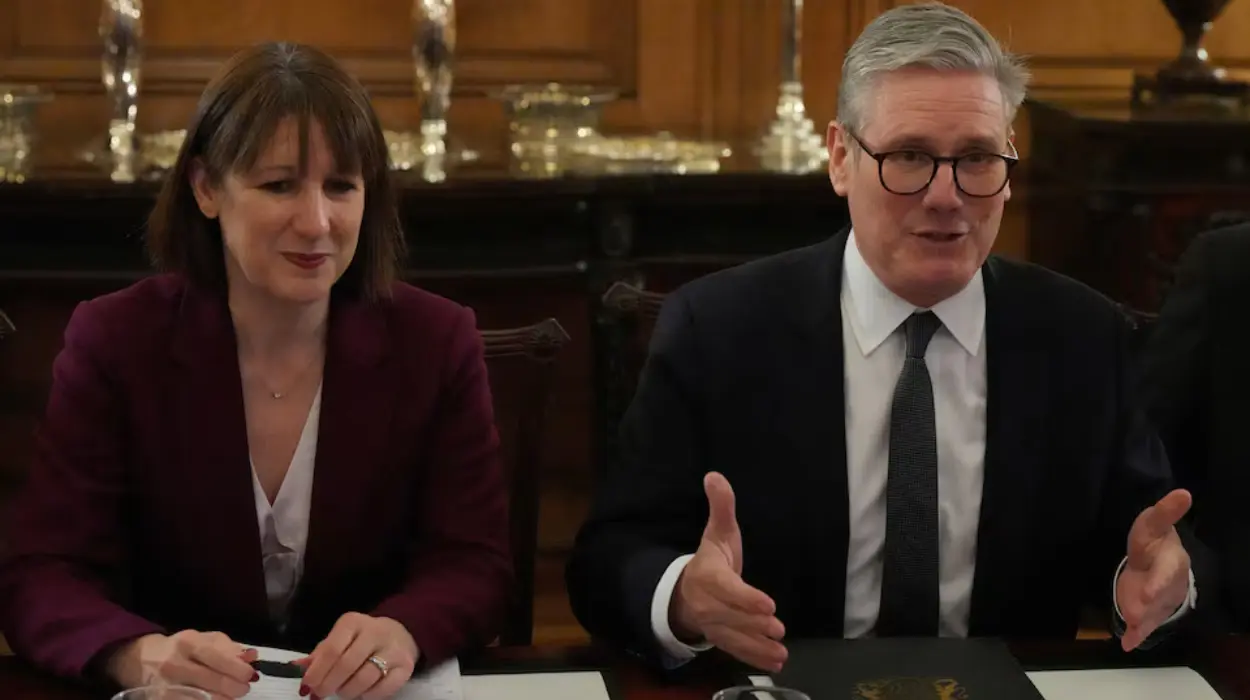UK (Parliament Politics Magazine) – Chancellor Rachel Reeves to announce budget plans as inflation drops to 2.8%, while critics blame Labour policies for prolonged cost-of-living struggles.
As reported by The Independent, Ms Reeves is set to make deeper benefit cuts after the UK’s fiscal watchdog projects lower-than-expected savings.
How is Rachel Reeves responding to the welfare savings shortfall?
The Chancellor will give her spring statement on Wednesday after the Office for National Statistics revealed inflation dropped to 2.8% in February from 3% the previous month. The decline was sharper than projected, surpassing the analyst’s forecast of 2.9%.
The OBR has reportedly rejected the government’s £5bn savings estimate from welfare reforms, revising the actual figure to just £3.4bn. Ms Reeves prepares plans for £500m welfare cuts to stabilize finances.
How will Rachel Reeves address the £1.6bn shortfall?
Ms Reeves, facing growing concerns among Labour MPs over the depth of welfare cuts, is unlikely to cover the entire £1.6bn gap solely through benefit cuts. Instead, she is expected to seek savings from broader public spending cuts.
The government has revealed significant welfare cuts, with Work and Pensions Secretary Liz Kendall tightening eligibility for personal independence payment (PIP) and reducing the health element of universal credit (UC). Critics warn the measures will primarily impact disabled individuals.
To meet her fiscal rules, the chancellor is planning £15bn in savings in the upcoming spring statement. She is expected to admit the need for more aggressive measures to stimulate growth while balancing the budget without resorting to tax hikes.
What will Rachel Reeves announce in her spring statement?
In her spring statement, she will highlight national security as a priority, citing global threats. She plans to raise defence spending by £2.2bn from April, aligning with the government’s largest military investment since the Cold War.
She will say,
“This moment demands an active government stepping up to secure Britain’s future. A government on the side of working people. To grasp the opportunities that we now have and help Britain reach its full potential, we need to go further and faster to kickstart growth, protect national security and make people better off through our plan for change.”
Despite facing criticism over slow economic growth, Ms Reeves will tell MPs she remains proud of her achievements in office.
What did John Healey say about the welfare savings shortfall?
Cabinet Minister John Healey told Times Radio,
“That’s a calculation we may see confirmed by the Office for Budget Responsibility about the longer-term savings that our plans to change the welfare system may bring.”
He added,
“You can’t have a benefits system that is failing people and out of control in this way.”
What did Mel Stride say about Labour’s economic policies?
According to Shadow Chancellor Mel Stride, inflation remains higher than when Labour first took office, raising concerns about the government’s economic policies.
He stated,
“We left Labour with inflation bang on target. But since their no-strings-attached union payouts, record tax rises and borrowing splurge, they have pushed up the cost of living.”
Mr Stride added,
“The chancellor’s choices have saddled the country with higher inflation for longer. Unless she takes urgent action at her emergency budget today, working families will continue to pay the price.”
What have charities and health experts warned about welfare cuts?
Amid growing concerns over welfare reductions, charities and health experts have raised fears that the cuts may threaten lives, as officials prepare to disclose how many will be impacted.
Mind’s helpline advisers report alarming distress, with some callers fearing welfare reductions leave them “no choice but to end their own life.”
A specialist in wellbeing economy at the University of Glasgow, Professor Gerry McCartney, stated,
“There is now substantial evidence that cuts to social security since 2010 have fundamentally harmed the health of the UK population.”


